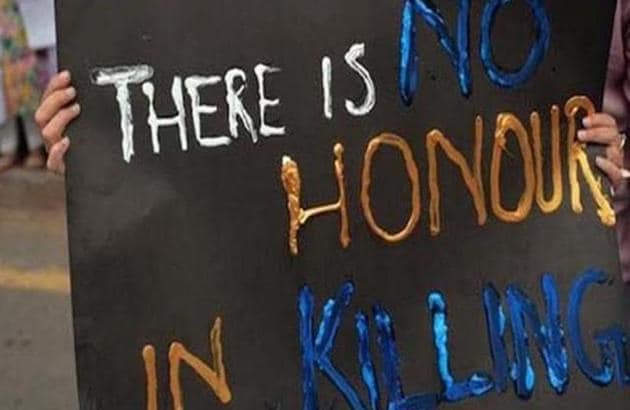For men to share the housework
Thanks to the 2019 Time Use Survey by the National Statistical Office we know exactly how men and women spend their time. Women, across India spent an average of five hours a day to men’s hour-and-a-half to cook, clean, wash, and care for children, the elderly and the sick.
That’s a gender gap of roughly four hours. Fair? Far from it. One of the key reasons that holds women back from paid employment is the inordinate time they spend on unpaid housework. Clearly, the more time women spend on housework, the less they have for paid work outside the house.
Time for change? Yes, please.

More time for ourselves
Less time on housework doesn’t just mean more time to work in a job. It means more time for leisure, mental health, fitness, friendships or just a walk in the park. Which brings us to the next wish.
To walk on the street without being stared at
Women constitute half the population but are conspicuously absent in public spaces. Think Parliament. Think the higher judiciary. Think start-ups and C-suites and company boards. Think streets and public transport. Think all-male panels (or the appropriately descriptive ‘manels’). Now ask: Where are the women?
In 2011, Shilpa Phadke, Sameera Khan and Shilpa Ranade published Why Loiter? Women and Risk on Mumbai Streets, a book that was a radical call to action premised on the simple act of loitering. For years, girls had been taught (and still are) that good girls did not loiter outside their homes. When they stepped out, it was for A Purpose: Go to school or buy vegetables.
The debate on building inclusive cities has only grown since the book’s publication. In cities from Chennai to New Delhi, there’s a new focus on infrastructure including parks, public transport and sports facilities that can be accessed by women, the differently-abled, gender minorities including trans people, children and elderly.
How to fix the problem of leering men? Easy. Get more women out and about. Normalise the sight of us in public spaces.
The right to love
Nothing is stickier in modern India than the idea of the arranged marriage with 93% of young people still leaving the choice of a life partner to their parents in keeping with caste, community and faith lines.
What happens to those who fall in love? There is no one size fits all, but interfaith marriages have become more fraught with as many as eight BJP-ruled states enacting so-called ‘love jihad’ laws that place even more obstacles to those who wish to marry outside their faith.
The poorly named ‘honour killings’ by parents whose children have married outside of caste continues to shame modern India and not one state has a law that deals specifically with this crime.

For LGBTQI people, the right to love without the right to marry is now under judicial scrutiny.
The right to love doesn’t come without challenges and the new year will certainly see its share of it.
Allies, including male allies
Gender roles imposed by society affects everyone, even men who grow up with toxic ideas of what it is to be ‘masculine’—to bear responsibility for their families and to always be strong.
Here’s the thing. Everyone’s a winner when there is gender equality.

But to be a good ally, men must first understand and acknowledge their privilege and learn to listen to women.
Women’s groups are waking up to the need to talk to men and boys and engage with them in questioning gender roles.
Basically, men and boys we need to talk.
Freedom from curfews and discriminatory hostel rules
Different rules, including curfews, for male and female students in university hostels across India are hardly a secret. But women students at the Kozhikode Government Medical College weren’t taking this lying down and went to the high court to ask why they had to return to their hostels by 9.30 pm, when male students faced no such curfew.
Justice Devan Ramachandran seemed to agree: “Lock up men because they create trouble. Let ladies walk free.”. But before he could reach a verdict, the state education department quickly announced the removal of curfew for senior students, regardless of gender.
To stop being judged
Enough of what we wear, how we laugh, how we assert ourselves and express our emotions, including our rage.
Enough of “why-was-she-out”, “she-provoked-it” tropes of victim blaming when we ask for justice under India’s laws.
Enough of judges telling rape survivors to marry their rapists, or (equally cringe) tie a raakhi on their wrists.
Enough of double standards – men are ambitious, women are aggressive; men are sensitive, women are hysterical.
Just enough.
(What do you want for the year ahead? Tell me at: namita.bhandare@gmail.com)

Greta Thunberg’s KO
I’d never heard of Andrew Tate before he decided to take on climate activist Greta Thunberg. Tate had been banned from Twitter for hate speech in 2017 until last month when Elon Musk got him back.
The 35-year-old former kickboxer and proud misogynist once seen in a video that shows him hitting a woman with a belt, started it with a tweet to Thunberg about the carbon emission of his 33 cars. The 19-year-old replied like a boss, joking about “small dick energy” in a nine-word tweet that is already the seventh most “liked” tweet of all time.
Someone else then advised Tate to “stop flirting and just f*** already”. Tate’s response was predictably small dick energy (“she ain’t ready”).

(Credit: JEZBEL)
What followed was a twist you simply cannot make up.
Tate and his brother Tristan are wanted on human trafficking charges and have been holed up in villa in Romania, north of Bucharest.
Social media was abuzz that a pizza box in his 2-minute comeback video to Thunberg apparently gave away his location–a claim denied by Romanian police. Nevertheless, police did arrive a few hours after the video and arrested the brothers Tate and two others for trafficking and rape. They will be held in custody for 30 days.
The last word went to Thunberg of course: “This is what happens when you don’t recycle your pizza boxes.”
IN NUMBERS
Across G-20 nations, far more women than men have confidence in women’s leadership with 52% of women (just 43% of men) saying they are “very comfortable” with having a woman as the head of government; 53% as CEO of a company.
Source: Kantar Public Service in partnership with the Reykjavik Global Forum and the Women Political Leaders network.
Watch

(Source: The Guardian)
After male university students walked out of their exam to protest the Taliban’s decision to ban women in Afghanistan from university education, another act of incredible solidarity and courage from a Kabul university professor who tore up his diploma on live TV in Afghanistan. “If my sister and my mother can’t study, then I do not accept this education,” Ismail Mashal said in Dari.
Rest in power

(Source: The Guardian)
The New York Times called her “the designer who designed the look of punk”. She was an “eternal student” noted The Guardian. The word “maverick” turned up all too frequently to describe Vivienne Westwood who until her death at 81 resolutely refused to be defined by a single label. Fashion designer. Committed environmentalist. Fervent vegetarian who spoke out against consumerism. “Fashion can be so boring,” she once said.
“She made clothes for real women’s bodies,” writes Morwenna Ferrier in this tribute. “Removed from their catwalk context, they didn’t just expand the definition of acceptable body type; they encouraged it.”
News you might have missed
Karnataka takes a welcome stand
The BJP-ruled Karnataka government told the Supreme Court on December 22 that it supported the criminal prosecution of a man accused of marital rape.
Marital rape is not recognised as a crime in India and the Karnataka government’s stand is a welcome contrast to the both the BJP and the Union government that have not taken a position saying all the states first need to be consulted before there can be a change in the law.
Muslim women’s quest for gender justice
Following the Kerala government’s reported decision to abide by the Sharia in all aspects of Muslim personal law, a new forum, Muslim Women for Gender Justice comprising of women’s groups and social organisations, will be taking forward their fight for equal rights, including inheritance rights.
And the good news…
After initially being denied space at the Chennai Book Fair which starts on January 6, LGBTQI publishers, Queer Publishing House will make its debut with three books, including two by rural trans women and a book of poems by a trans man. ““There are so many queer writers and every time they have had to approach Cis publishers,” trans activist Grace Banu told me on the phone about the imprint she launched earlier this year. “This is our own safe space.”
Around the world
In South Korea, officials have lifted an import ban on adult-sized sex dolls after years of debate over whether the government was interfering in people’s private lives. Child-like dolls that resemble minors will, thankfully, remain prohibited, ABC news reports.
In Brazil, Amazon activist Marina Silva has been appointed environment minister by President-elect Luiz Inacio Lula da Silva, reports PBS Newshour. The announcement of her appointment signals the new administration’s intent to crackdown on illegal deforestation of the world’s largest rainforest.
In Nigeria, an exhibition inspired by Ife (an ancient city) terracotta heads at Lagos is a chilling reminder of the 94 schoolgirls still missing nine years after Boko Haram extremists seized 275 schoolgirls in Borno state. Read more in the Associated Press report here.
| Were you forwarded this email? Did you stumble upon it online? Sign up here. |
| That’s it for this week. Do you have a tip or information on gender-related developments that you’d like to share? Write to me at: namita.bhandare@gmail.com. |